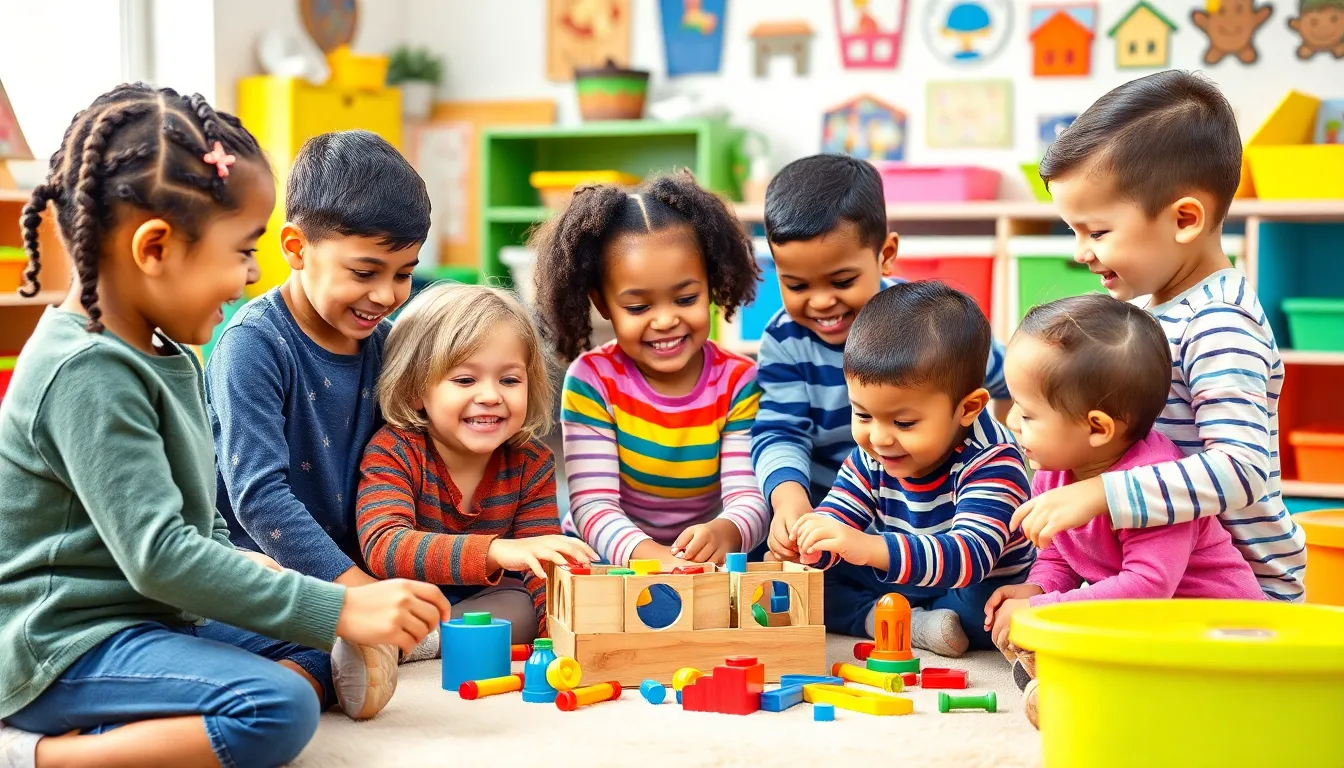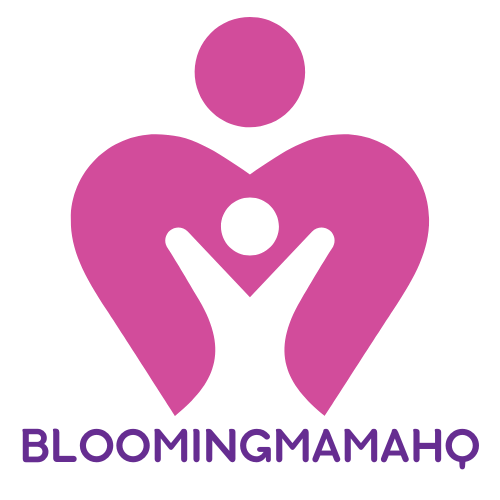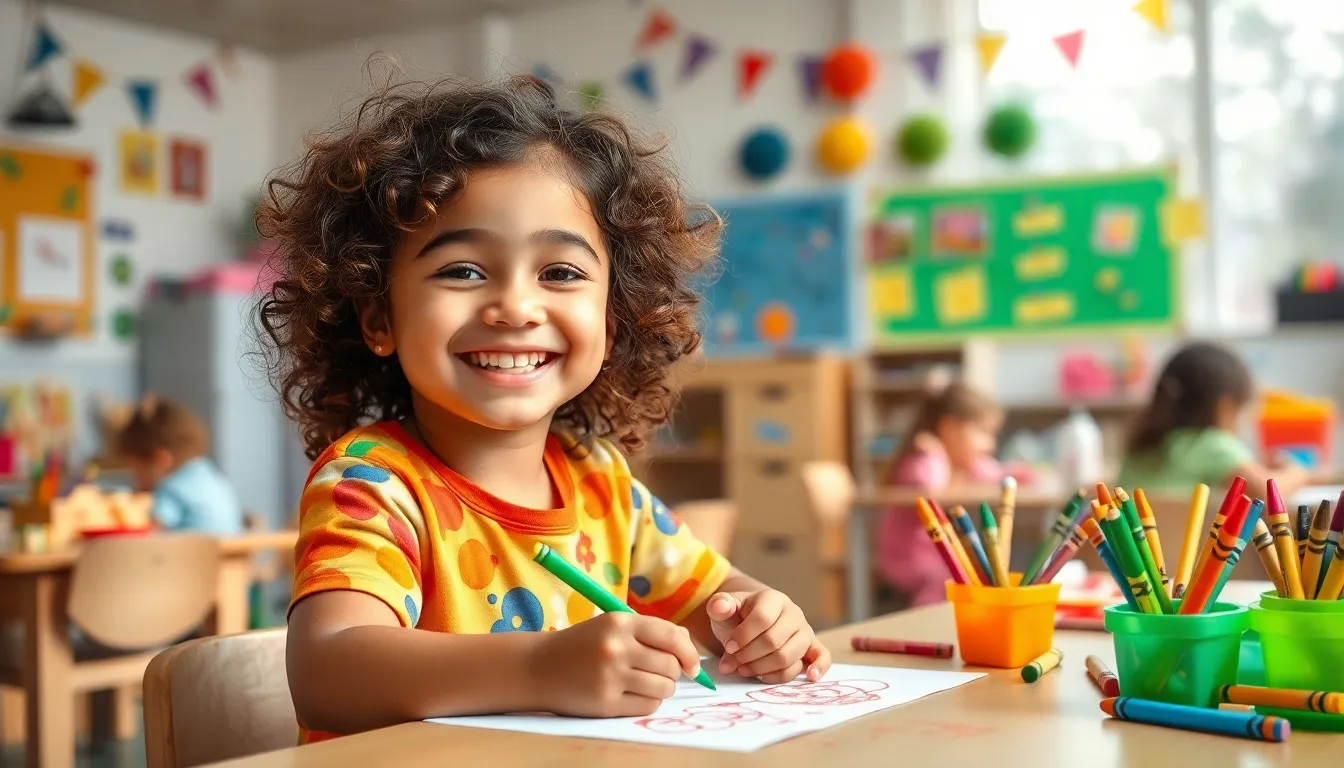In the whimsical world of preschool learning, tiny hands are busy shaping their futures, one crayon stroke at a time. Imagine a place where curiosity reigns supreme, and the only rule is to have fun while learning. It’s not just about ABCs and 123s; it’s a magical journey that lays the foundation for lifelong skills.
Table of Contents
ToggleOverview Of Preschool Learning
Preschool learning creates a vibrant setting where children explore and develop. Activities like painting, storytelling, and group play nurture creativity and social skills. Young learners thrive when they experience these interactive environments.
Curiosity drives children’s desire to discover new concepts, fostering a love for learning. Engaging in hands-on activities promotes cognitive development and critical thinking. Combined, these aspects help children grasp foundational academic skills in a fun manner.
Social interaction plays a crucial role in preschool education. Sharing and collaborating with peers teach essential communication skills. Conflicts often arise during play, providing opportunities for children to resolve issues independently.
Emotional development also flourishes in preschool settings. Teachers emphasize empathy and respect, guiding children in managing their feelings. These lessons contribute to stronger emotional intelligence as they progress in life.
The blend of structured and unstructured learning experiences encourages children to take risks. Experimentation fuels self-discovery, boosting their confidence. These moments of exploration influence their future academic journeys.
Curriculum in preschool incorporates personalized learning. This flexibility caters to individual interests, helping all children engage meaningfully. Monitoring progress allows educators to tailor instruction to each child’s needs.
Overall, preschool learning nurtures well-rounded development. Children emerge with the necessary skills to navigate their future educational paths effectively. By embracing curiosity and enjoyment, preschool sets the foundation for lifelong learning.
Importance Of Preschool Learning

Preschool learning serves as a critical foundation for early childhood development. Children engage in diverse activities that promote their overall growth, enhancing their future educational experiences.
Cognitive Benefits
Cognitive development thrives in preschool settings. Activities such as problem-solving games and interactive storytelling stimulate critical thinking. Teachers facilitate exploration, allowing children to grasp essential academic concepts through hands-on experiences. Furthermore, this structured yet playful environment encourages curiosity. Young learners develop essential skills like memory retention and attention span. Research shows that preschoolers who engage in these enriching activities perform better in later academic settings.
Social Development
Social skills flourish during preschool years. Children learn to cooperate and communicate with their peers through group activities. Sharing toys, taking turns, and resolving conflicts create opportunities for independent problem-solving. Additionally, these interactions cultivate empathy and respect for others’ feelings. Preschool education emphasizes teamwork and collaboration, vital components for future success. Enhanced social skills established in preschool lay the groundwork for effective communication in both personal and academic environments.
Types Of Preschool Learning Models
Preschool learning models offer diverse approaches to early childhood education. Each model engages children in unique ways, promoting holistic development.
Montessori Method
The Montessori Method emphasizes hands-on learning and independence. In this model, children choose activities that spark their interest, fostering self-directed exploration. Classrooms contain specially designed materials that cater to various developmental stages. Teachers act as guides, facilitating discovery while allowing students to take the lead. This approach nurtures problem-solving abilities and critical thinking skills. Flexibility in lesson plans enables educators to tailor experiences to individual needs, fostering a love for learning that persists into later schooling.
Reggio Emilia Approach
The Reggio Emilia Approach prioritizes collaboration and communication among children. This model views children as capable individuals who contribute to their learning experiences. Classrooms are designed to encourage interaction, using open spaces and various resources. Teachers record children’s thoughts and ideas, documenting their learning journeys. Projects emerge from children’s interests, promoting inquiry and creativity. Parents actively participate in this process, reinforcing the connection between home and school. As a result, the Reggio Emilia Approach cultivates well-rounded individuals equipped for future academic and social challenges.
Activities That Enhance Preschool Learning
Engaging in diverse activities significantly enhances preschool learning. These activities stimulate various developmental areas, fostering growth in children.
Creative Play
Creative play encompasses a range of imaginative experiences. Children use art supplies like crayons and paint to express their thoughts. Role-playing scenarios, such as pretending to shop or cook, encourages social skills and teamwork. Sand and water play introduces concepts like volume and texture, promoting scientific thinking. Constructing with blocks allows children to explore architectural concepts, enhancing spatial awareness. Such activities build confidence, allowing children to take risks and explore boundaries in a supportive environment. Peer collaboration during creative play strengthens communication skills while nurturing emotional understanding.
Structured Learning Activities
Structured learning activities provide essential frameworks for young learners. Utilizing activities like guided reading helps improve literacy development through engaging storytelling. Math games create opportunities for numerical understanding, encouraging problem-solving skills in a fun context. Educational songs and interactive rhymes develop language skills and rhythm. Scheduled group activities, such as circle time, foster a sense of community and belonging. Teachers can tailor lessons to children’s interests, ensuring personalized engagement. Consistent participation in structured activities enhances focus and discipline, laying a strong foundation for future academic success.
Challenges In Preschool Learning
Preschool learning faces several challenges impacting children’s educational experiences. Addressing these issues is vital for effective early childhood education.
Access And Equity Issues
Access to preschool education varies significantly across communities. Low-income families often face barriers such as transportation, costs, and availability of quality programs. Studies indicate that children from underserved backgrounds benefit less from preschool, leading to disparities in educational outcomes. Programs that offer subsidies or free access can improve enrollment among marginalized groups. Efforts to increase access ensure that all children have equal opportunities for early learning, fostering a diverse classroom environment.
Curriculum Gaps
Curriculum gaps hinder effective preschool learning. Some programs lack a standardized curriculum, leading to inconsistencies in the educational experiences provided to children. Without a cohesive framework, educators may struggle to address individual learning needs. Research shows that well-structured curricula linked to developmental milestones enhance cognitive and social skills. Ensuring that all preschools implement comprehensive curricula can provide children with essential foundational skills, helping them succeed in future academic settings.
Preschool learning is a vital stepping stone in a child’s development. The unique blend of creativity and structured activities fosters essential skills that shape their future. As children engage in imaginative play and collaborative tasks they not only enhance their cognitive abilities but also build social connections that are crucial for their growth.
The diverse approaches to preschool education ensure that every child can thrive in an environment tailored to their needs. By addressing challenges such as access and curriculum gaps, educators can create equitable opportunities for all children. Investing in preschool education is investing in a brighter future for the next generation, equipping them with the tools they need to succeed in school and beyond.



